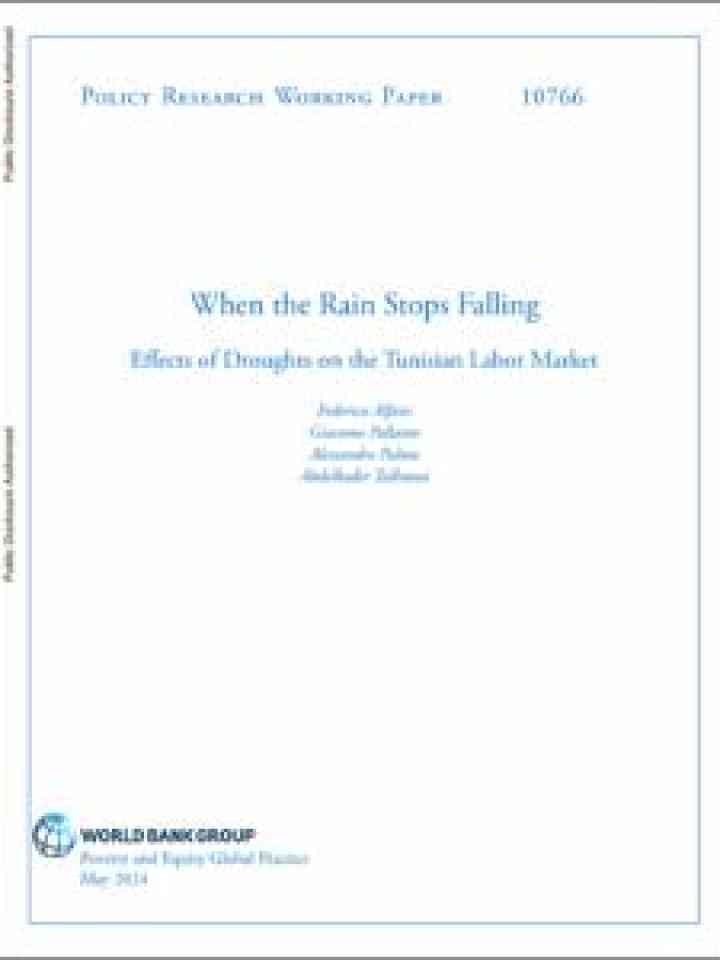When the rain stops falling: Effects of droughts on the Tunisian labor market
This paper investigates the effects of severe drought shocks on Tunisia's agriculture sector during 2000-19. The authors test whether agricultural workers - who are the most exposed to climate variability - faced a job displacement as a consequence of severe drought events that occurred. They also look at the employment rate of other economic sectors and at the unemployment rate to investigate whether a drop in agricultural employment is offset by job reallocation or translates into higher unemployment.
The study found that in governorates that experienced a severe drought the share of employment in agriculture drops by about 5.2 p.p., on average in the mid run (over 4 years after the shock). However, the largest and significant negative effects are detectable just in the aftermath of the shock and up to one year later, with a magnitude ranging between 7.4 and 10.5 percentage points. They also find a contemporaneous increase of employment in the other non-agriculture sectors of the economy.
Explore further
